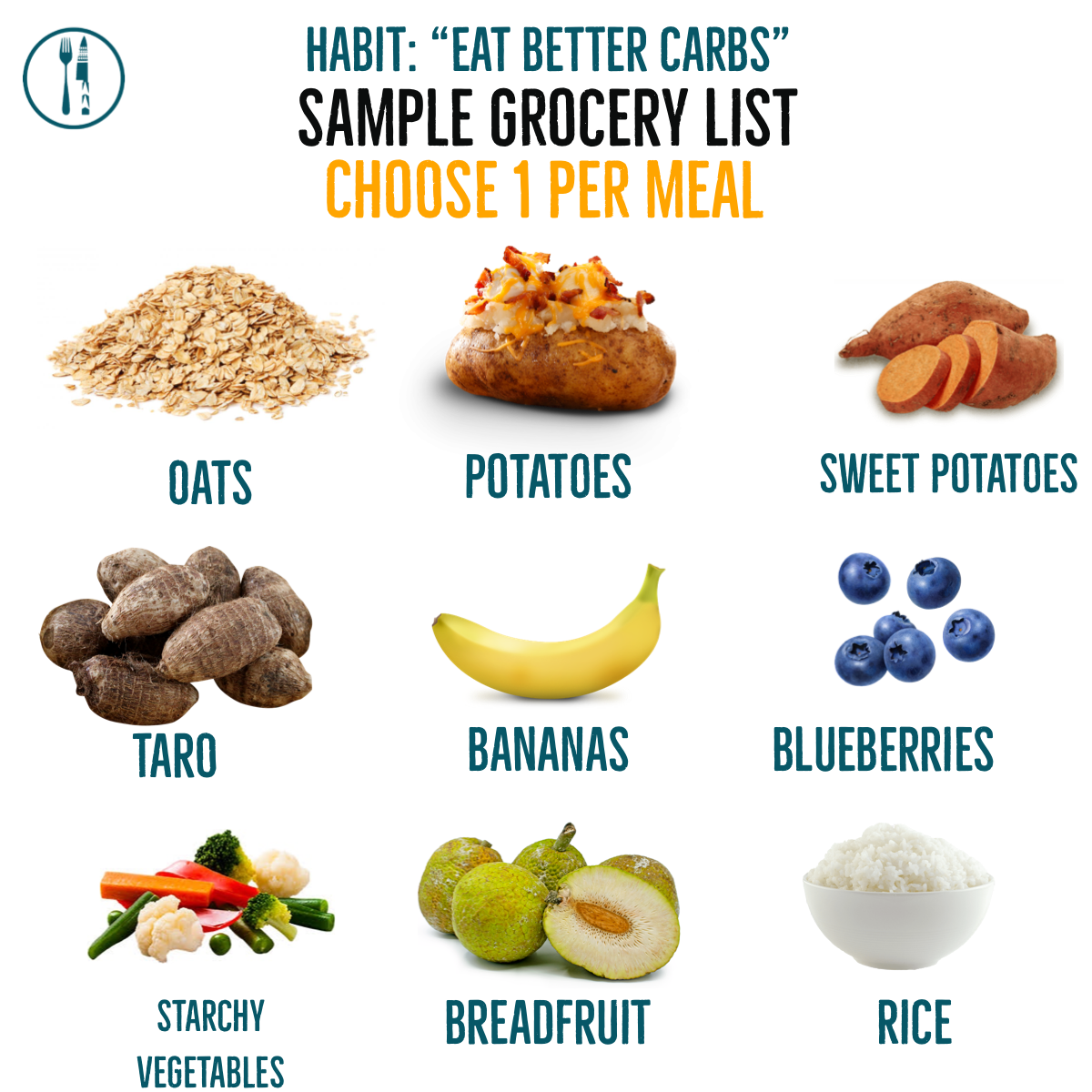Carbohydrates often get a bad rap, especially in the world of fitness and nutrition. However, not all carbs are created equal, and understanding the difference between them can significantly impact your health and performance.
What Makes a Carbohydrate Nutritionally “Better”?
Better carbohydrates are less processed, closer to the source, and more nutrient-dense. These better carbs come in many forms—grains, beans, root vegetables, and fruits. The main criteria for “better” carbs are how much processing and refinement the food has undergone. Nutritionally better carbs will look more like foods you can recognize in the wild.
For example, whole fruits provide a wide array of nutrients in addition to their carbohydrate content. They’re a complex matrix of vitamins, minerals, phytonutrients, water, fiber, and other carbohydrates.

Why Choose Smart Carbs?
Sustained Energy:
Smart carbs provide a slow, steady release of glucose into the bloodstream, helping to maintain stable energy levels throughout the day. This is particularly beneficial for athletes and individuals with active lifestyles.
Improved Digestion:
The fiber in smart carbs promotes healthy digestion by adding bulk to the stool and aiding in regular bowel movements. It also helps prevent constipation and supports gut health.
Weight Management:
Foods rich in smart carbs are typically lower in calories and higher in fiber, which can help you feel fuller for longer. This can aid in weight management by reducing overall calorie intake and preventing overeating.
Blood Sugar Control:
Because smart carbs are digested slowly, they help prevent rapid spikes and crashes in blood sugar levels. This is especially important for individuals with diabetes or those at risk of developing the condition.
Nutrient Intake:
Smart carbs are often packed with essential vitamins, minerals, and antioxidants that support overall health and well-being. These nutrients play crucial roles in immune function, bone health, and disease prevention.
How to Incorporate Smart Carbs into Your Diet
Choose Whole Grains Over Refined Grains:
Whole grains, such as quinoa, brown rice, and whole wheat bread, provide more fiber and nutrients than refined grains, such as white rice and white bread.
Include a Variety of Fruits and Vegetables:
These are excellent sources of carbohydrates and provide many essential vitamins and minerals. Aim to fill half your plate with non-starchy vegetables at each meal.
Reduce Added Sugars:
Many processed foods and drinks contain high levels of added sugars, which can contribute to weight gain and other health problems. Opt for whole foods whenever possible.
Limit Consumption of Highly Processed Foods:
These foods often contain refined carbohydrates and added sugars and lack the fiber and nutrients found in whole foods.
Consider the Glycemic Index:
Foods that have a high glycemic index (such as white bread) are rapidly broken down and absorbed, causing a rapid spike in blood sugar levels. Foods with a lower glycemic index (such as whole wheat bread) are absorbed more slowly, providing a steady source of energy.

Conclusion
Incorporating smart carbs into your diet can provide numerous health benefits, from sustained energy and improved digestion to better blood sugar control and enhanced nutrient intake. By making simple swaps and choosing whole, unprocessed foods, you can enjoy the advantages of smart carbs while supporting your overall health and fitness goals.
Remember, carbohydrates are an essential part of a balanced diet. Instead of eliminating them, focus on making smarter choices that nourish your body and fuel your performance.



